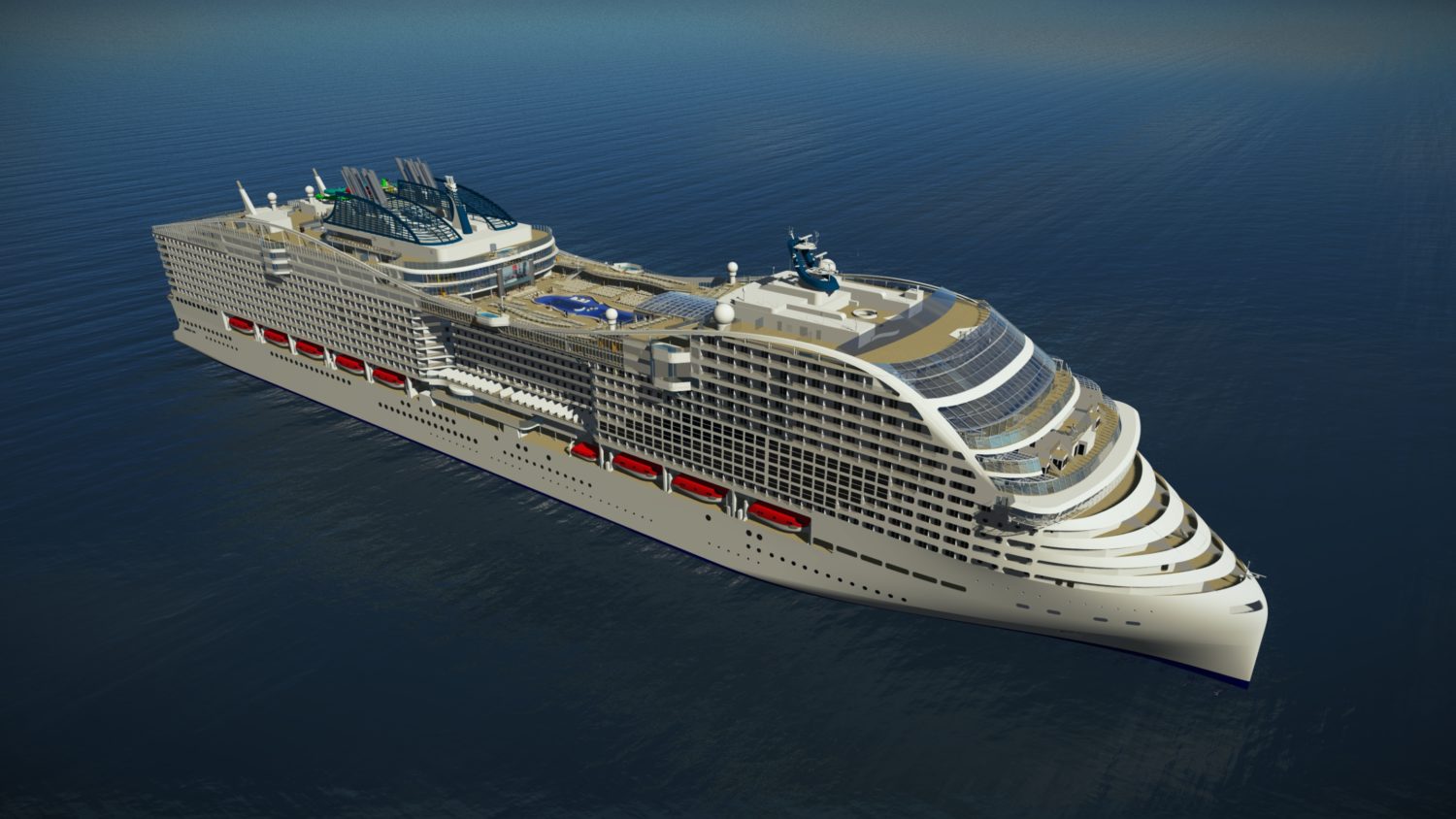MSC Cruises is currently the world’s fastest growing cruise line and that status likely won’t change for the next decade.

MSC Cruises has not only announced that they signed firm contracts for two more World class ships, but the cruise line has signed an memorandum of understanding (MoU) for the development of an additional new prototype class of LNG-powered cruise ships to operate under the MSC Cruises brand.
A second MoU sees MSC Cruises partnering with Chantiers de l’Atlantique in the development of yet another innovative prototype ship class concept with which they will explore opportunities that wind power and other advanced technologies could bring.
First, the two companies announced the signing of firm contracts for the construction of MSC Cruises’ third and fourth LNG-powered MSC World Class ships, to be delivered in 2025 and 2027. The first of the initial two cruise ships in the class is currently under construction at the Chantiers de l’Atlantique shipyard in Saint-Nazaire and is scheduled to enter service in 2022.
Coming in at 205,000 gross tons, the cruise ship will become the biggest vessel operated by a European cruise line as well as the first LNG-powered cruise ship built in France. Compared to standard marine fuel, LNG decreases sulphur emissions and particulate matter by 99%, NOx emissions by 85%, and CO2 emissions by 20%.
MSC Cruises and Chantiers de l’Atlantique also extended their partnership over the next decade with two additional projects. First, the companies signed a memorandum of understanding (MoU) for the development of yet a new prototype class of LNG-powered cruise ships to operate under the MSC Cruises brand.
For this project, MSC Cruises, the shipyard and other partners will focus on developing emerging environmental technologies in line with IMO’s vision for 2030 and 2050. The four vessels in this new class would represent a capital investment exceeding EUR 4 billion (≈$4.4 billion USD) and an extra 30 million working hours for the yard, the suppliers and subcontractors involved in the project.
The three agreements signed today represent an investment in excess of EUR 6.5 billion (≈$7.2 billion USD) in the French economy.



